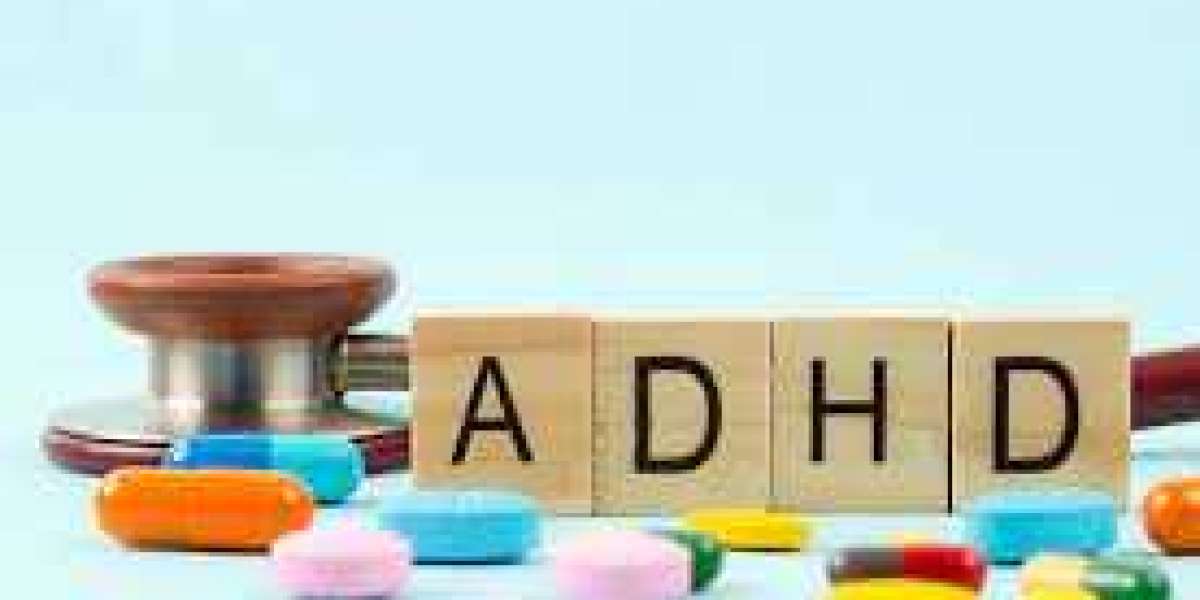Deficit in Focus One common neurodevelopmental disorder that affects both children and adults is hyperactivity disorder (ADHD). Even though there are many different forms of treatment, drugs are frequently quite important in controlling symptoms. Nevertheless, adverse effects are possible with any medication, even those recommended for ADHD. Anyone receiving therapy must be aware of these possible adverse effects and know how to handle them.
Comprehending ADHD Drugs
Stimulants and non-stimulants are the two main types of ADHD treatments. The most often prescribed and widely useful stimulant drugs are methylphenidate (e.g., Ritalin, Concerta) and amphetamines (e.g., Adderall, Vyvanse). There are other non-stimulant drugs, such as guanfacine (Intuniv) and atomoxetine (Strattera), especially for people who might not react well to stimulants or would rather not take them because of the negative effects.
Typical Adverse Effects of ADHD Drugs
These drugs can greatly enhance concentration, self-control, and general quality of life, but they can also have a number of negative side effects. The following are a few of the most prevalent ones linked to drugs that contain both stimulants and non-stimulants:
Insomnia:
Drugs that stimulate the nervous system might interfere with sleep cycles, making it harder to fall or stay asleep. This may intensify the symptoms of ADHD and set off a vicious cycle of exhaustion and poor focus.
Appetite Suppression:
A common side effect of stimulant drugs is decreased appetite, which can result in undernourishment or weight loss. Children should be especially concerned about this since it could stunt their growth and development.
Elevated Heart Rate:
Individuals with pre-existing cardiac issues may experience concerns due to stimulants' potential to elevate blood pressure and heart rate. For those beginning stimulant medication, routine monitoring is recommended.
Anxiety and Irritability:
Although some people report feeling calmer, others could experience an increase in anxiety or irritability. This can be especially difficult because it can resemble signs of ADHD.
Gastrointestinal problems:
These drugs' effects on appetite and digestion are frequently associated with the emergence of nausea, stomach discomfort, and other gastrointestinal problems.
Mood Swings:
Some users may go through emotional ups and downs, such as unexpected outbursts of rage or grief. These mood swings can affect daily functioning and relationships.
exhaustion:
Ironically, stimulants can cause exhaustion once the effects of the prescription wear off, despite the fact that they are meant to boost energy and attention.
Movements or Tics:
In rare cases, stimulant drugs may cause or worsen tics in those who are prone to them. It's critical to keep an eye out for these signs.
Dizziness:
Some people may experience lightheadedness or vertigo, especially after starting a new medicine or dosage.
Headaches:
As a side effect, tension or headaches may arise; these are frequently linked to stress, alterations in appetite, and dehydration.
Side Effects of Non-Stimulant Medication
Although they might not be the same as those linked to stimulants, negative effects from non-stimulant drugs are nonetheless possible. Typical adverse effects consist of:
Fatigue:
Unlike stimulants, non-stimulants occasionally cause drowsiness that interferes with day-to-day activity.
Some users report experiencing nausea and vomiting as well as gastrointestinal discomfort.
Diminished Libido:
Sexual desire might fluctuate, which can have an impact on interpersonal interactions.
Handling the Side Effects of ADHD Medication
Managing side effects successfully starts with being aware of their potential. Here are some tactics to think about:
1. Speak with your medical professional
It's critical that you and your healthcare practitioner communicate openly. Talk about any side affects you experience without holding back. To strike the ideal balance between minimizing negative effects and optimizing benefits, changes to the dosage or kind of drug may be required.
2. Keep an eye on side effects and symptoms
You and your healthcare practitioner can spot trends by keeping a log of your symptoms and adverse effects. Make a note of the dosage, any adverse effects, and any lifestyle choices that might be causing your problems.
3. Modify Dosage Schedule
It may be helpful to talk with your doctor about dosage timing if sleeplessness is a serious problem. Medication taken early in the day can occasionally lessen sleep disturbances.
4. Keep Up a Nutritional Diet
Make nutrient-dense food your main emphasis to fight appetite suppression. Small, frequent meals throughout the day can promote general health and energy maintenance. Foods high in healthy fats and protein may be very helpful.
5. Maintain Hydration
Fatigue and headaches are two negative symptoms that can get worse from dehydration. Make sure you stay hydrated throughout the day, particularly if you are experiencing stomach discomfort.
6. Include Calming Techniques
Deep breathing, mindfulness, and yoga are examples of relaxation techniques that might help those who are feeling anxious or irritable. These techniques support emotional control and lessen stress.
7. Create a Sleep Schedule
Establishing a regular sleep schedule can assist in reducing insomnia. Set a relaxing bedtime routine to let your body know when it's time to unwind. Try to go to bed and wake up at the same time every day.
8. Take Behavioral Therapy Into Account
Behavioral therapy is a useful tool for helping people control their ADHD symptoms in addition to medication. By using both strategies, therapy efficacy can be increased overall and dependence on medication reduced.
9. Continual Examinations
Regular visits to your doctor enable continuous ADHD medication evaluation of the effects and efficacy of medications. It is especially crucial for people on stimulant drugs to regularly monitor their blood pressure and heart rate.
10. Educate Your Support System and Yourself
Families and individuals with ADHD benefit from knowledge about the disorder and available treatments. Participating in support groups or instructional materials might offer insightful advice and useful side effect management techniques.
In summary
ADHD drugs have the potential to change people's lives by giving them the concentration and self-control they require to succeed. But it's important to know about any adverse effects and to have a strategy in place to deal with them. Many people effectively manage the difficulties of ADHD treatment with open communication, proactive techniques, and support, freeing them up to concentrate on the things that are really important in life. Recall that efficient management is a joint endeavor, customized to meet your specific needs, between you and your healthcare practitioner.








